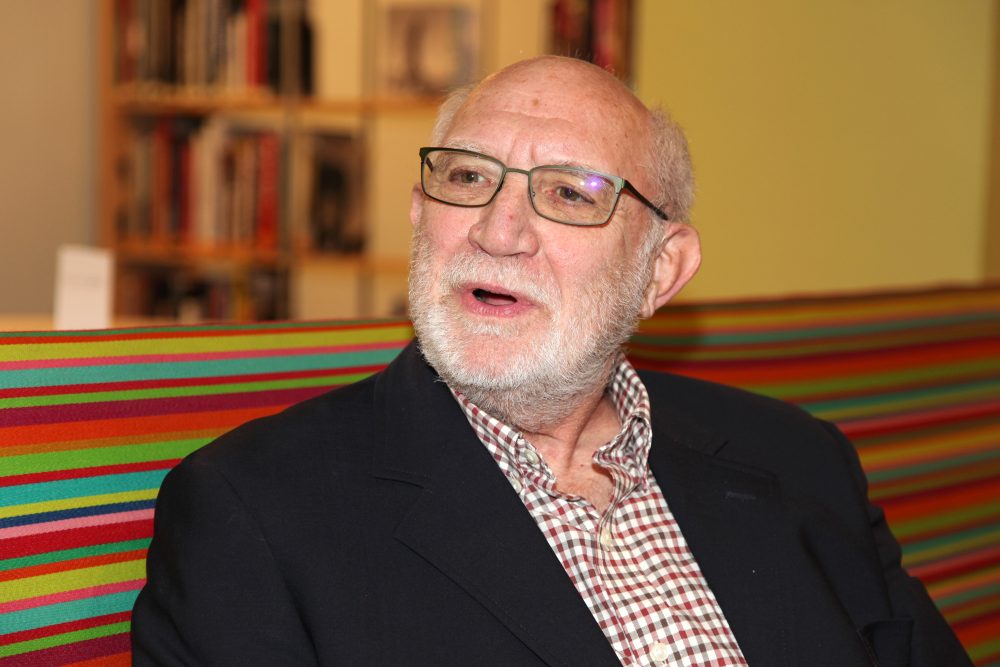
Photo by Aaron Salcido.
Joel Aberbach is Director of UCLA’s Center for American Politics and Public Policy. Before joining a panel discussion for a Zócalo/UCLA event titled, “Does the Expansion of Presidential Power Threaten the Constitution?” at the Museum of Contemporary Art in downtown Los Angeles, he talked in the green room about darkly comic novels and the romantic allure of turbulent times.
Which period would you most want to time travel to?
I’m not sure. I’ve been really lucky in my own life: I missed all the wars. I guess the late 19th century, given all the changes: the effects of the Industrial Revolution, the reshaping of the country. It probably wasn’t as stimulating to live in it as we think; people are going to look back on today and think it’s a fabulously turbulent time with all sorts of interesting characters. But there is that Chinese curse!
Was there a teacher or professor who really changed your life?
My dissertation advisor, Bob Lane, was very influential. He had the ability to shape what you were doing and thinking without being too direct about it. And as an undergraduate my honors advisor, Andrew Hacker. He was a bit of a cynic and he introduced me as an undergraduate to a lot of the aspects of politics, everything from the practical to the theoretical.
What do you do most of your reading on?
I have paper but I read novels on my iPad usually. The advantage of the iPad is you can put a lot of things on it and take just one thing with you. I like paper otherwise.
What are you reading for pleasure?
I’m in a book club, and I just finished A Horse Walks Into a Bar, by David Grossman, the Israeli novelist. It’s an account of a standup comedian’s presentation, with flashbacks and interactions with others. And even though it’s a book about a comedian it’s quite dark. Another novel that I read recently that I really liked was Viet Thanh Nguyen’s The Sympathizer. It’s all about his ambivalence, the main character, who works for the South Vietnamese but is an agent. It encapsulates all the ambivalence about the Vietnam War.
Is the Vietnam War era a period that particularly interests you?
I co-teach a course on the sixties. And I do the lectures on Vietnam protesters and the whole sort of ethos of political turbulence of the sixties.
What do your students find most interesting about that period?
They have a very romantic notion of the sixties and they think it was a fabulous time, freedom in every respect. You know, it’s a long time ago. I graduated from high school in 1957, so World War I was as far from that period as Vietnam is from this one. And I thought World War I was ancient history.



